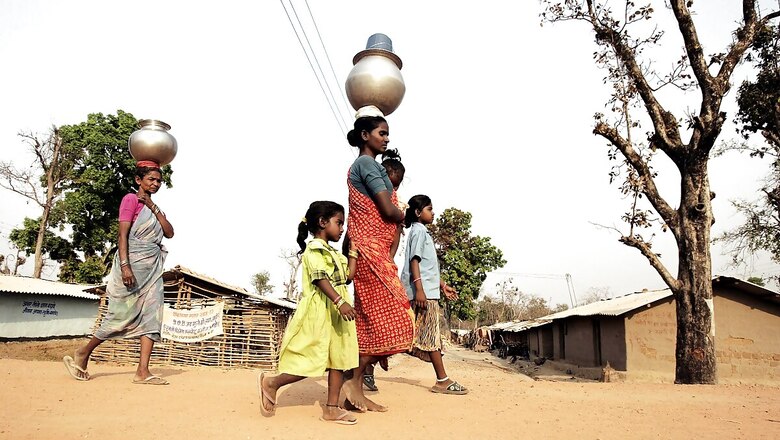
views
While Oxfam’s global report exposed the widening gap between the poor and rich amid the pandemic, a closer look showed that women in India were more likely to bear job losses and work in informal arrangements during the period.
The Indian supplement of the report titled ‘the Inequality Virus’ said this was mostly because of women’s work “being invisible”.
Eighty-three per cent out of the women who could keep their jobs also faced a severe income drop, the report said, citing a survey by the Institute of Social Studies Trust.
ALSO READ | Covid-19 Makes India’s Poor Stare at Decade-long Poverty, But Wealth of Top Billionaires Swells by 35%: Oxfam
From the respondents, 66 per cent also experienced an increase in unpaid care work and 36 per cent reported an increased burden of child and elderly care work during this period.
Oxfam, a confederation of 20 non-profit groups that focuses on the alleviation of global poverty, was founded in 1942. It is led by Oxfam International.
According to its report, 17 million women lost their job in April 2020. Therefore, unemployment for women rose by 15 per cent from a pre-lockdown level of 18 per cent. “This increase in unemployment of women can result in a loss to India’s GDP of about 8 per cent or $ 218 billion,” it said, adding that women who were employed before the lockdown were also 23.5 percentage points less likely to be re-employed compared to men in the post-lockdown phase.
It mentions that since the pandemic, women’s total time spent in both paid and unpaid activities had risen with the increase in the workload as a result of being stuck at homes. Before Covid-19, rural and urban women spent 373 minutes and 333 minutes per day respectively in paid and unpaid activities combined, the report said.
ALSO READ | Wealth Earned by 100 Richest Indians During Pandemic Can Give 13.8 crore Poorest Rs 94,000 Each: Report
It added that the “work-from-home” culture had blurred the lines between working hours and personal downtime, as women now worked longer hours while managing household chores, and taking care of children and her family.
The report said that while ASHA workers – whose work can be seen as an extension of care work – had experienced an increase in their work, their remuneration was too measly with just Rs 1,000 for the COVID-19 duties assigned to them.
“It is estimated that if India’s top 11 billionaires are taxed at just 1 per cent on their wealth, the government can pay the average wage of the nine lakh ASHA workers in the country for 5 years,” the Oxfam supplement said.
The report said women were also plagued with increased violence in the pandemic as growing anxiety during emergencies often fuel violent and abusive behaviour directed towards women.
Domestic violence saw an uptick as according to statistics, the National Commission of Women received 1,477 complaints between March 25 and May 31, 2020 – a 10-year high than the complaints received between March and May. This prompted them to launch a WhatsApp helpline for women, as well.
Since May, the cases have only increased. The highest number of cases were registered in July at 660 but have remained at least above 450 each month since June 2020, the report stated.
It added that as of November last year, domestic violence cases stood at 4,687 compared to 2,960 in 2019 – a 58 per cent rise.
While Uttar Pradesh saw the highest number of cases at 1,576, 906 cases were reported in Delhi and 265 in Bihar.
Read all the Latest News, Breaking News and Coronavirus News here



















Comments
0 comment